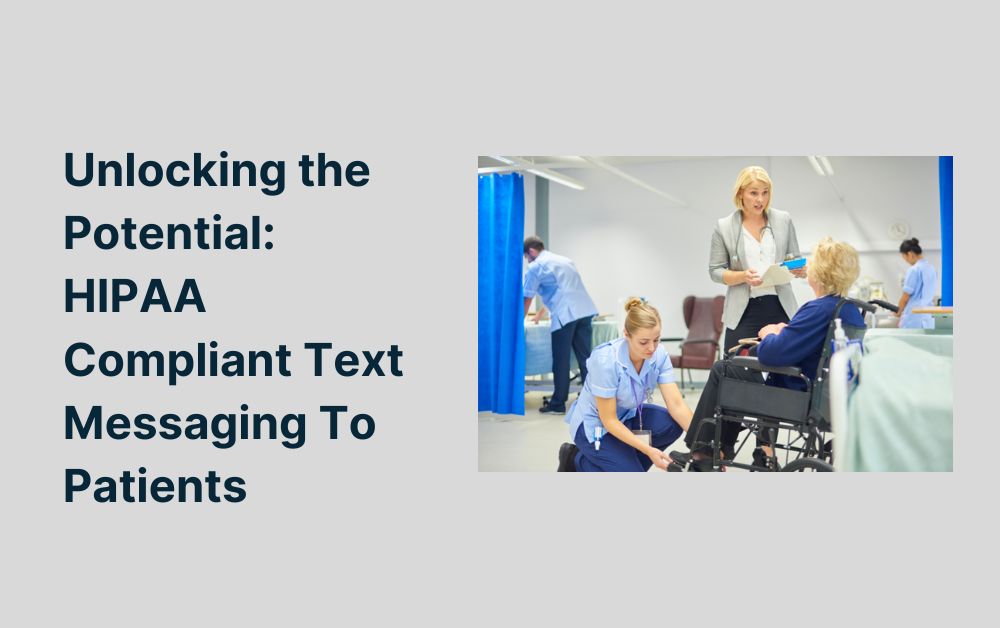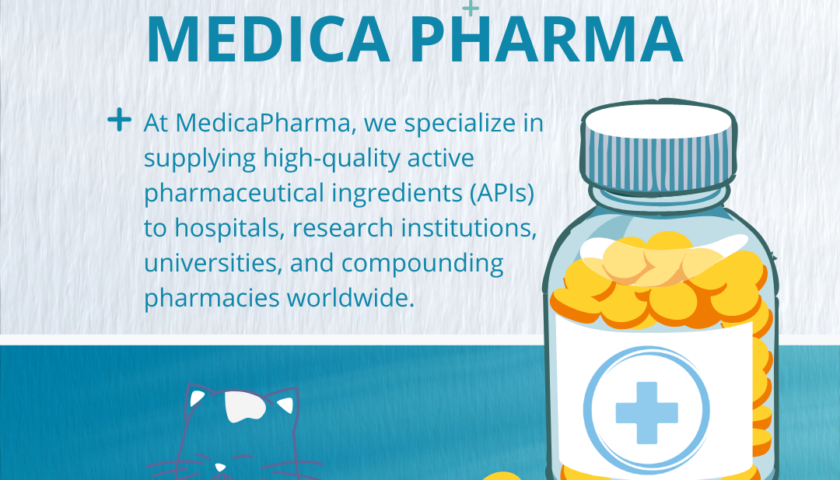The way that patients and healthcare practitioners communicate has changed in the current digital era. As cellphones become more and more common, text messaging has become a practical and effective way to remain in touch. But security and privacy are critical in the field of healthcare. This is where HIPAA-compliant text messaging comes into play, providing a solution that guarantees the security of private patient data while facilitating easy communication. Let’s explore the significance, advantages, and best practices of HIPAA Compliant Text Messaging To Patients.
Understanding HIPAA Compliance
Safeguarding Patient Privacy
HIPAA, the Health Insurance Portability and Accountability Act, sets forth standards for protecting sensitive patient data. Compliance with HIPAA regulations is crucial to maintaining patient privacy and security, particularly when it comes to electronic communications.
The Role of HIPAA in Text Messaging
HIPAA compliance in text messaging involves adhering to strict guidelines to safeguard protected health information (PHI). This includes implementing encryption, access controls, audit trails, and other security measures to prevent unauthorized access or disclosure of patient data.
Key Considerations
- Encryption: Messages should be encrypted both in transit and at rest to prevent interception or unauthorized access.
- Access Controls: Access to patient information should be restricted to authorized personnel only, with user authentication mechanisms in place.
- Audit Trails: Logging and tracking of all text message interactions ensure accountability and facilitate auditing in case of security incidents.
Benefits of HIPAA Compliant Text Messaging
Enhancing Patient Engagement
HIPAA compliant text messaging opens up new avenues for patient-provider communication, enhancing engagement and fostering stronger relationships. Patients appreciate the convenience of receiving appointment reminders, medication alerts, and other important notifications directly to their mobile devices.
Improving Care Coordination
Efficient communication between healthcare providers leads to better care coordination and outcomes. With HIPAA compliant text messaging, care teams can securely share patient information, collaborate on treatment plans, and coordinate follow-up care in real-time.
Empowering Patients
By enabling patients to communicate with their healthcare providers via text messaging, HIPAA compliance puts the power in their hands. Patients can ask questions, report symptoms, and request prescription refills conveniently and confidentially, leading to improved satisfaction and adherence to treatment plans.
Key Benefits
- Convenience: Patients can receive important updates and communicate with their healthcare providers anytime, anywhere.
- Efficiency: Streamlined communication workflows save time for both patients and healthcare providers.
- Privacy: HIPAA compliant text messaging ensures that sensitive patient information remains confidential and secure.
Best Practices for HIPAA Compliant Text Messaging
Implementing Effective Solutions
When choosing a HIPAA compliant text messaging solution, healthcare organizations should consider several factors to ensure compliance and usability.
Secure Platform Selection
Selecting a secure messaging platform that meets HIPAA requirements is essential. Look for features such as end-to-end encryption, user authentication, and administrative controls for managing user access and permissions.
Employee Training and Education
Proper training and education are crucial to ensuring that healthcare providers understand the importance of HIPAA compliance in text messaging and how to use the platform securely. Regular training sessions and updates help reinforce best practices and promote a culture of compliance.
Clear Policies and Procedures
Establishing clear policies and procedures for HIPAA compliant text messaging sets expectations and guidelines for how communication should be conducted. This includes guidelines for message content, patient consent, and reporting security incidents.
Key Takeaways
- Choose a secure messaging platform that meets HIPAA requirements.
- Provide comprehensive training and education for healthcare providers.
- Establish clear policies and procedures for HIPAA compliant text messaging.
Enhanced Patient Education and Health Promotion
Informative Messaging
HIPAA compliant text messaging allows healthcare providers to send educational resources, health tips, and reminders directly to patients’ mobile devices. This proactive approach to patient education empowers individuals to make informed decisions about their health and wellness.
Chronic Disease Management
For patients with chronic conditions, regular monitoring and management are essential. HIPAA compliant text messaging enables healthcare providers to send personalized care plans, medication reminders, and lifestyle recommendations tailored to each patient’s specific needs, promoting better disease management and improved outcomes.
Streamlined Appointment Scheduling and Follow-up
Appointment Reminders and Follow-ups
Missed appointments can disrupt continuity of care and lead to delays in treatment. HIPAA compliant text messaging streamlines appointment scheduling by sending automated reminders and follow-up messages, reducing no-show rates and ensuring patients receive the care they need in a timely manner.
Two-way Communication
Patients can easily confirm, reschedule, or cancel appointments via text message, fostering two-way communication between patients and healthcare providers. This level of accessibility and convenience improves appointment adherence and patient satisfaction.
Efficient Medication Management

Medication Adherence Support
Non-adherence to medication regimens is a common challenge in healthcare. HIPAA compliant text messaging provides an avenue for medication adherence support, with automated reminders for prescription refills, dosage reminders, and instructions for proper medication administration.
Reporting Side Effects and Concerns
Patients can use text messaging to report any side effects or concerns related to their medication directly to their healthcare provider. This real-time feedback enables prompt intervention and adjustment of treatment plans as needed, enhancing patient safety and medication efficacy.
Continuous Remote Monitoring and Support
Remote Monitoring Solutions
HIPAA compliant text messaging can be integrated with remote monitoring devices to track patients’ vital signs, symptoms, and health metrics remotely. Healthcare providers receive alerts and notifications in real-time, allowing for early intervention and proactive management of chronic conditions.
Telehealth Consultations
Telehealth consultations via text messaging enable patients to consult with their healthcare providers from the comfort of their homes. Whether it’s a follow-up appointment, routine check-in, or urgent medical concern, telehealth services offer convenience and accessibility without compromising on privacy or security.
Conclusion: Harnessing the Power of Secure Communication
HIPAA compliant text messaging offers a powerful tool for enhancing patient engagement, improving care coordination, and empowering patients to take an active role in their healthcare journey. By prioritizing privacy and security while embracing the convenience of modern communication technology, healthcare organizations can unlock the full potential of text messaging in delivering high-quality, patient-centered care.
HIPAA compliant text messaging is not just a communication tool; it’s a catalyst for transforming patient care delivery. By leveraging the power of secure and convenient communication technology, healthcare organizations can empower patients, streamline workflows, and improve health outcomes. With a commitment to privacy, security, and patient-centered care, the possibilities for innovation and advancement in healthcare are limitless.
Note:-For a more comprehensive grasp of this topic, delve into the detailed articles available on trendingblogsweb.





